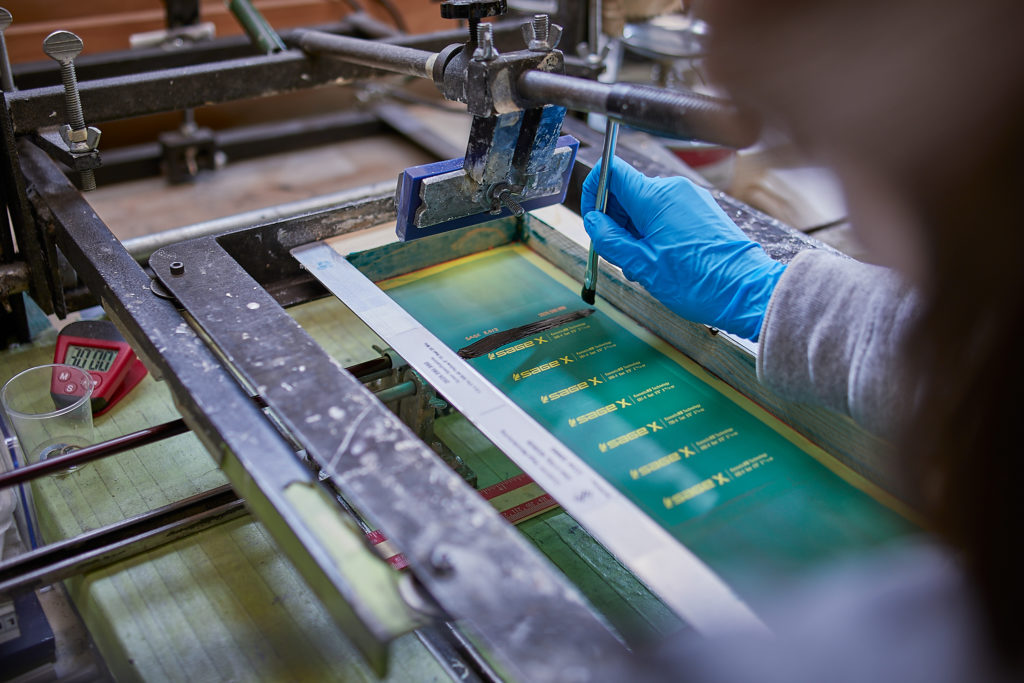A point of pride for a local business is in jeopardy. Scott Tuchel, director of operations at Far Bank Enterprises, shares how a lack of affordable housing on the island makes staying local a challenge.
Far Bank, a manufacturer and distributor of fly-fishing products, was founded in 1980 on Bainbridge Island. The rods, reels, waders, lines, leaders, and tippet produced by the collection of Far Bank brands are distributed across the globe, along the Rocky Mountain Spine, down to Argentina, and out to Japan. And yet, you could drive right by the distribution center on Miller Road and the manufacturing and corporate offices along Day Road, partly hidden by trees like most everything on the island, and not even know it was there. It’s a big operation and it contributes accordingly to city and state tax revenues. So though we might not see its presence, over time, we might feel its absence.
No doubt about it. It would be cheaper and more convenient to run this business elsewhere says Far Bank Director of Operations Scott Tuchel. “A year doesn’t go by that the conversation about the challenges of being located on the island doesn’t get rejuvenated.”
There are about 130 employees at Far Bank and in light of a recent surge in demand, the plan is to add another 45 to the manufacturing space alone. Scott says he could count without using all ten fingers the number of employees who live on the island (and one of those fingers he uses for himself). Affordable housing is just too hard to find.
The typical commute for a Far Bank worker is long, with some coming from as far away as Gig Harbor and Port Orchard. Though Bainbridge is just across the water from Port Orchard and would make a quick commute by boat in the realm of fantasy, the reality Scott describes is quite different. “You drive all the way around that part of Kitsap County through Silverdale, through Poulsbo and then across the bridge.” With the increase in demand, Far Bank added a third shift and is operating 24-5. Running a three-shift operation just makes it that much more challenging.
“They have to be really committed to do this,” says Scott, “because they’re driving by dozens and dozens of places with ‘Help Wanted’ signs.” So why make the trip? Scott attributes the loyalty to the company’s culture and work environment, which, he says, is “more like a family than any place I’ve worked before.”
“My theory is that we all spend way too much of our lives at work to work with people who suck,” says Scott, “so we spend a lot of our time hiring people who we want to spend our day with.” There are times, however, when the opportunities closer to home lure employees away. But some return.
Scott can recall the tour he was given when he was interviewing for his current job. “How long have you been here?” he asked one worker after another. The responses—five, seven, eight, eleven years—blew him away, never mind the veterans who’ve been at Far Bank since the company was founded.
For sure, affordable housing on the island would make life much easier for Far Bank employees and the company itself. But making it possible for these workers to live on the island isn’t just good for them—it’s good for Bainbridge.
“Affordable housing is an indicator of a healthy local economy. Without that you’re going to lose the socio-economic diversity, some of the manufacturing business, probably some of the retail business and restaurants, and you start to create a community that feels a little bit less like a community. It’s not the kind of place most of us would want to live.” Scott has in mind his childhood home outside the Twin Cities, where bedroom communities were common. “With no places to shop or go out for dinner there is no community hub, no center. Basically, a place where people sleep.”
The people who sell Far Bank products in places around the globe say that “Handcrafted on Bainbridge Island,” emblazoned on the fly rods, means something. Exactly what the true value of that means, Scott isn’t sure. But it means something to him and should mean something to us too.

